Outreach
Working Together for Greater Impacts

Working Together for Greater Impacts
| The Lao Foundation |
| Fostering a good relationship with our community is not just a matter of social responsibility, but a means to be “connected” and be aware of the conditions around us. It is better to establish early on a mutually beneficial relationship with the community. This comes in handy when problems occur or when difficult situations arise.Our strategy is in line with our advocacy on education, which empowers and gives hope to people. It is an opportunity to uplift one’s life. We choose to start with school children, as we believe that the youth is the hope of the country. We support, nurture, guide, and give them the opportunity to grow and spread their wings. These initiatives work both for the communities and the Company. While the Company offers scholars the opportunity of a proper education, the latter become eligible for employment upon graduation. This arrangement helps fill the manpower requirements of the Company. Successful scholars are provided with on-the-job training experience. |
| 2011 to Present | Number |
Scholars with Partner Organizations |
|
| No. of scholarship/educational assistance awarded with partner organizations (elementary to college and Technical Vocational – nationwide) | 2,096 |
| No. of college graduates with partners | 137 |
| No. of Technical and Vocational graduates | 281 |
| Employment rate | 85-90% |
Directly managed scholars |
|
| No. of scholars in the adopted communities | 168 |
| No. of scholars who are children of in-need employees of D&L Group and outsourced workers assigned in the companies of D&L | 106 |
| No. of college graduates | 21 |
| Employment rate | 85 % |
Educational Excellence Awards |
|
| No. of awardees (counted per year since 2005) | 3,607 |

| On Education |
| The Lao Foundation believes that it is through education—having the necessary knowledge, skills, and proper values—that one will be able to transcend poverty. Education being the main thrust of the Foundation, is central to all its programs and projects. LFI supports the education of in-need youth nationwide through its different partner organizations. It also offers and directly manages scholarships to in-need senior high school and college students in the communities where the companies of the D&L Group are located. In believing that charity should begin at home, LFI offers scholarships to the children of in-need employees of the D&L Group and outsourced workers assigned to the different companies of D&L. Annually, it also awards the academic excellence of the children of D&L Group employees to promote the value of education. LFI works towards building minds through its scholarship projects, transforming hearts through values formation that is central to its scholarship projects, and changing lives through its education to employment thrust. In 2021, a number of companies of the D&L Group were accredited by TESDA – opening its doors to the scholars of LFI from Dualtech Training Center Foundation, Inc. and Don Bosco Agro-Mechanical Technology Center in Legazpi and to other students in need of a place for their in-plant training. 133 multi-skilled trainees have been trained in the different plants thus far and 65 of them have been hired as regular employees. |
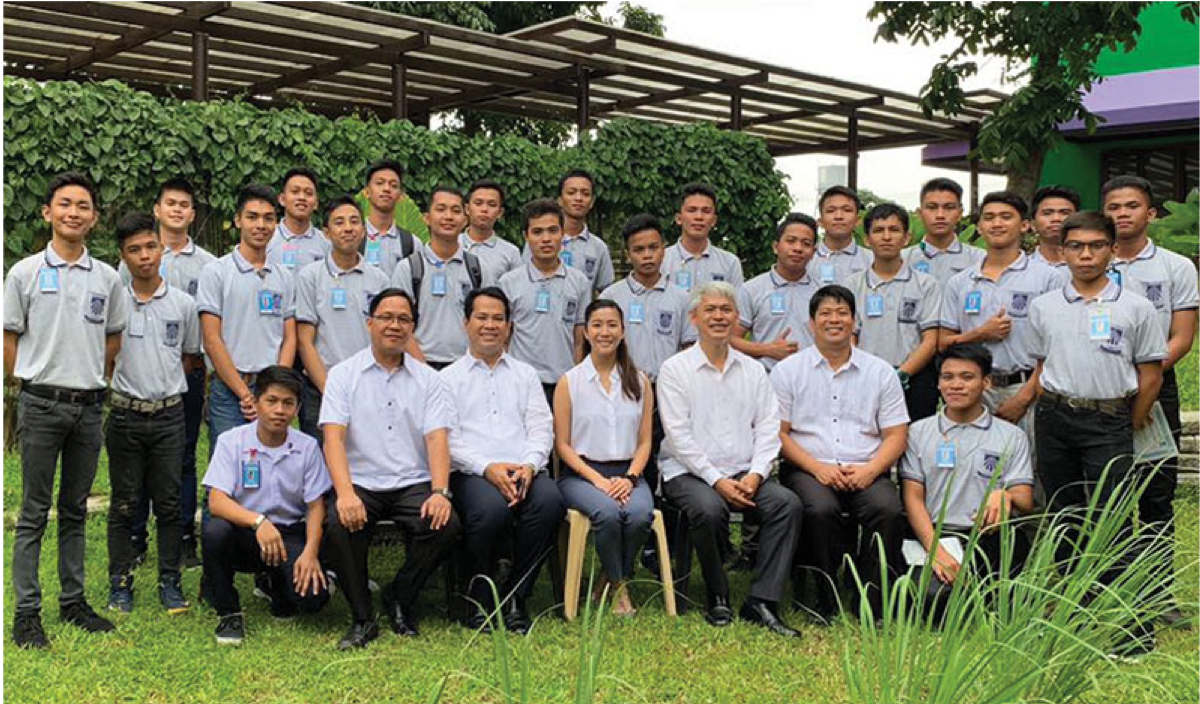 Sustainable development requires holistic multi-sectoral cooperation. It is to this end that the Lao Foundation joined the Zero Extreme Poverty 2030 Movement. LFI has been collaborating with the different organizations in bringing families out of extreme poverty.The Lao Foundation has extended its scholarship in partnership with Dualtech Training Center to identified youths from families in extreme poverty since 2019. In just 2 years of Dualtech’s technical course, the youths are equipped with multi-skills, gainfully employed, and have slowly changed the lives of their families. Sustainable development requires holistic multi-sectoral cooperation. It is to this end that the Lao Foundation joined the Zero Extreme Poverty 2030 Movement. LFI has been collaborating with the different organizations in bringing families out of extreme poverty.The Lao Foundation has extended its scholarship in partnership with Dualtech Training Center to identified youths from families in extreme poverty since 2019. In just 2 years of Dualtech’s technical course, the youths are equipped with multi-skills, gainfully employed, and have slowly changed the lives of their families.
Community DevelopmentGRI 3.3, 413-1, 413-2 | SDG 2.3, 2.4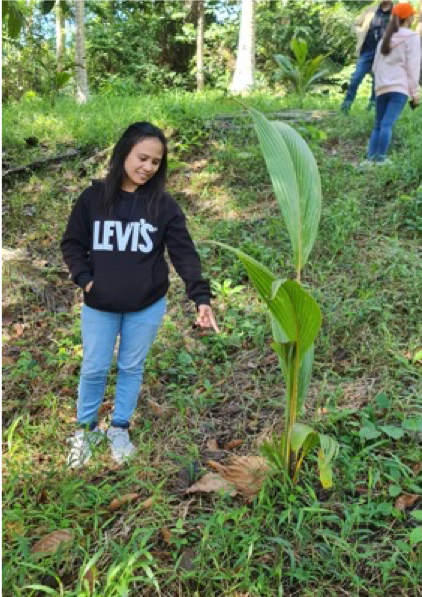 Coconut is one of the main ingredients that the D&L Group uses for its products. LFI, as a way of giving back to the coconut farming community, embarked on a challenging task of working with the communities and expanding its current programs. LFI envisions sustainable livelihood and better lives for the coconut farmers and their families.
In 2022, LFI started with the profiling of its target communities to holistically assess the needs of the target communities. LFI believes that for its projects to be sustainable and impactful, LFI must work with the different stakeholders in the community to respond to the assessed need. Coconut is one of the main ingredients that the D&L Group uses for its products. LFI, as a way of giving back to the coconut farming community, embarked on a challenging task of working with the communities and expanding its current programs. LFI envisions sustainable livelihood and better lives for the coconut farmers and their families.
In 2022, LFI started with the profiling of its target communities to holistically assess the needs of the target communities. LFI believes that for its projects to be sustainable and impactful, LFI must work with the different stakeholders in the community to respond to the assessed need.
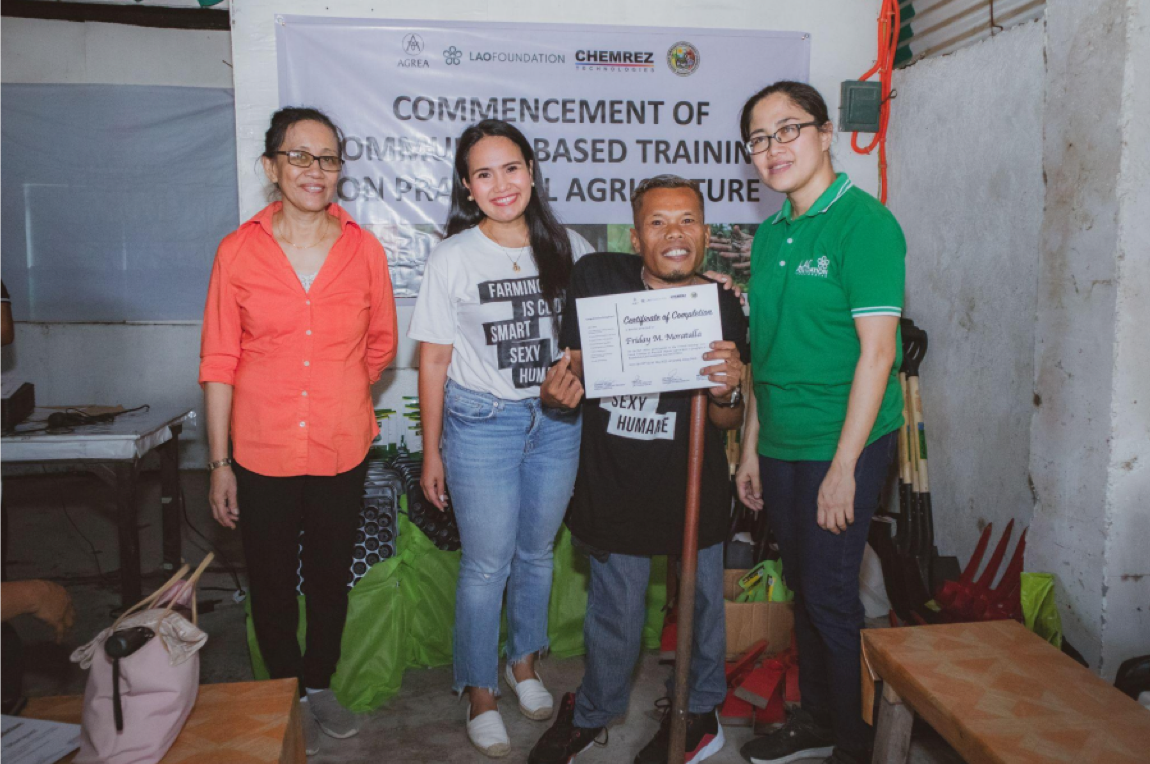 “I was able to organize my own community-based training on what I have learned from this program, and I shared it too with the 50 PWD members of our community.”
Mr. Friday Moratalla
Farmer Beneficiary and Person with Disability (PWD)
“I was able to organize my own community-based training on what I have learned from this program, and I shared it too with the 50 PWD members of our community.”
Mr. Friday Moratalla
Farmer Beneficiary and Person with Disability (PWD) |
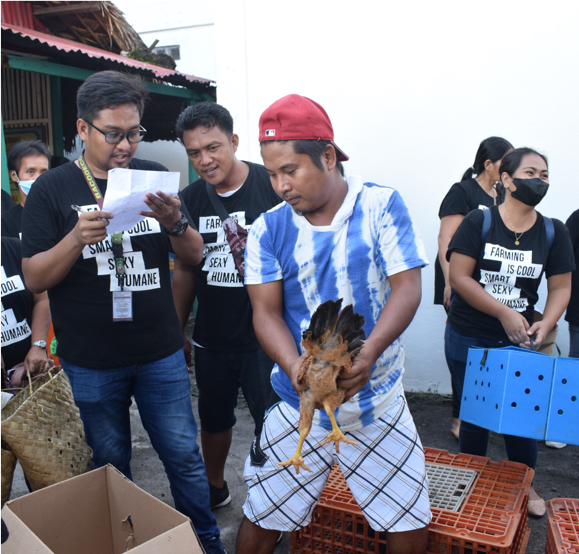 Animal livelihood
Through our Livelihood Programs, we work with non-profit organizations and farmer cooperatives to provide coconut farmers with the appropriate values, skills, knowledge and opportunities to increase their agricultural productivity and income. Animal livelihood
Through our Livelihood Programs, we work with non-profit organizations and farmer cooperatives to provide coconut farmers with the appropriate values, skills, knowledge and opportunities to increase their agricultural productivity and income. |
 Donated solar panels
Working with communities means assessing their needs, even beyond coconut farming.
With holistic community assessments by professional third-party partners, LFI is able to plan long term, embarking on a series of projects from the most pressing needs to longer gestation ones, building on the gains for greater impacts. Donated solar panels
Working with communities means assessing their needs, even beyond coconut farming.
With holistic community assessments by professional third-party partners, LFI is able to plan long term, embarking on a series of projects from the most pressing needs to longer gestation ones, building on the gains for greater impacts. |
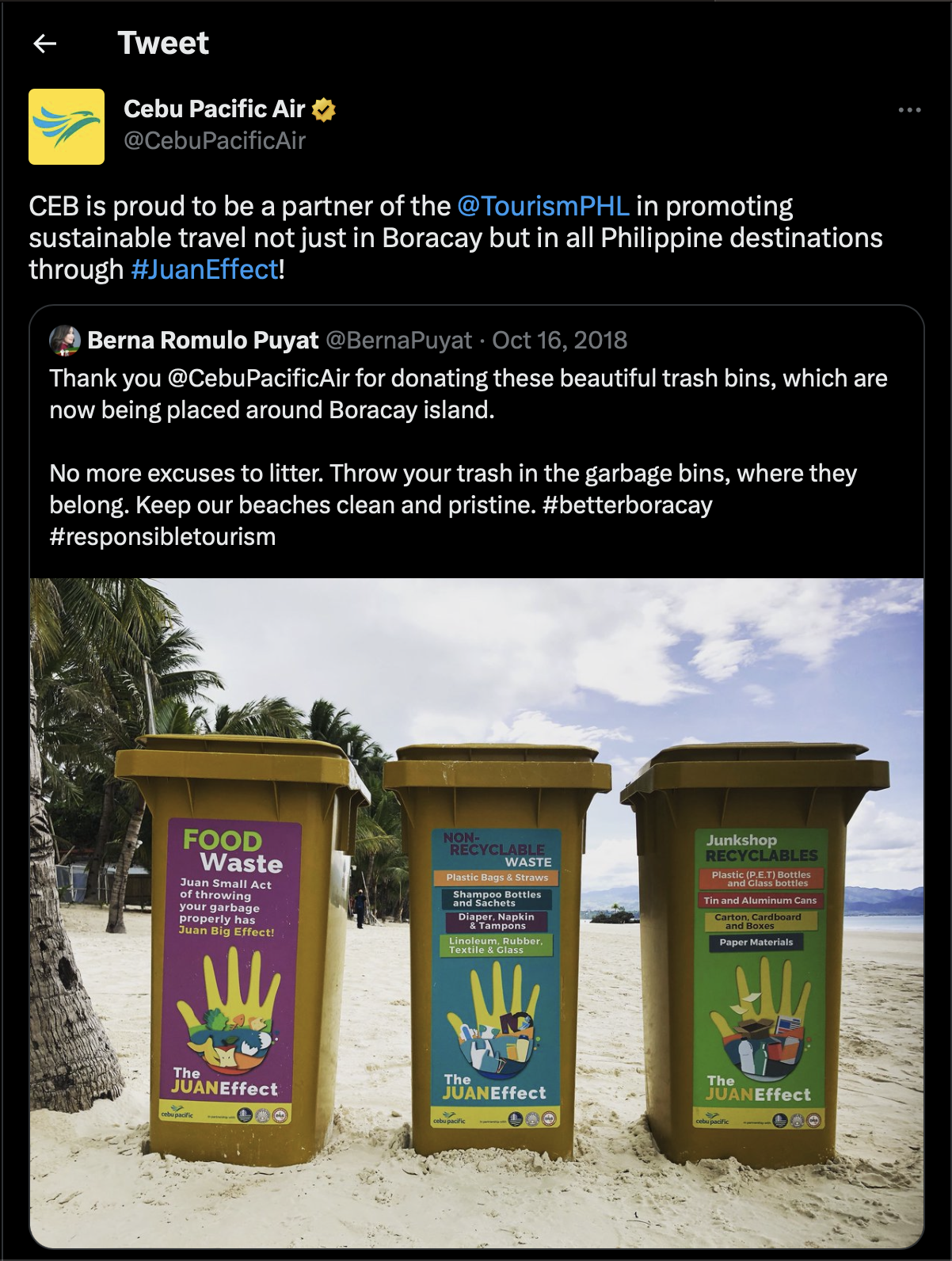 UpCycled™ initiative and partnership to convert residual plastic wastes (no value and non-recyclable plastic waste like sachets) to higher value plastic products.Design Center – Bakong Project
UpCycled™ initiative and partnership to convert residual plastic wastes (no value and non-recyclable plastic waste like sachets) to higher value plastic products.Design Center – Bakong Project
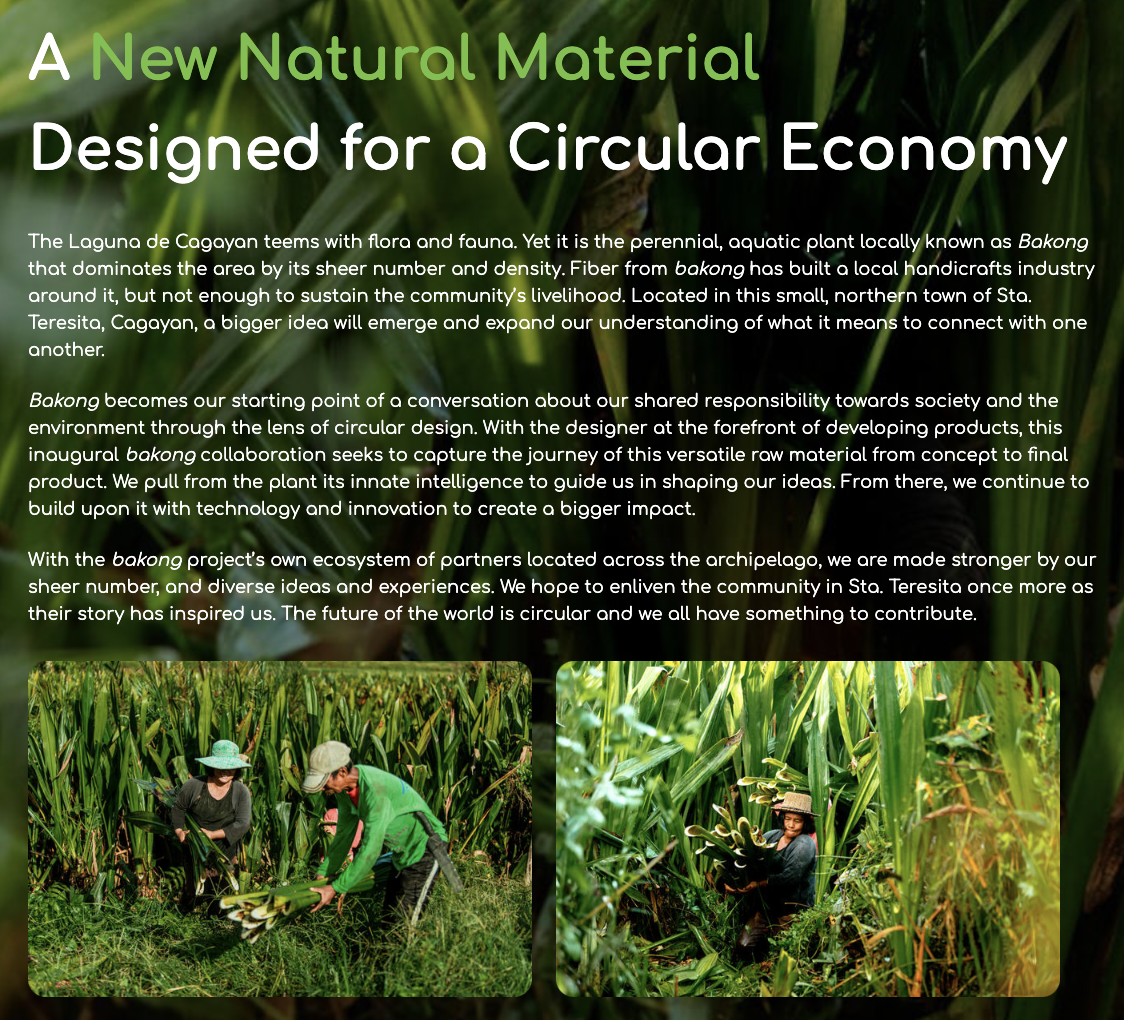 A DTI Design Center-initiated project to use invasive indigenous plant materials for higher value products. The project is geared towards the use of Crinum asiaticum, locally known as “bakong”, in wood-like plastic products which showcases the strength of fibers in polymer products. This is coupled with the bio-based materials used in Biorez® and similar technologies to produce environmentally sound materials while sustaining community-government-industry engagements.
A DTI Design Center-initiated project to use invasive indigenous plant materials for higher value products. The project is geared towards the use of Crinum asiaticum, locally known as “bakong”, in wood-like plastic products which showcases the strength of fibers in polymer products. This is coupled with the bio-based materials used in Biorez® and similar technologies to produce environmentally sound materials while sustaining community-government-industry engagements. |